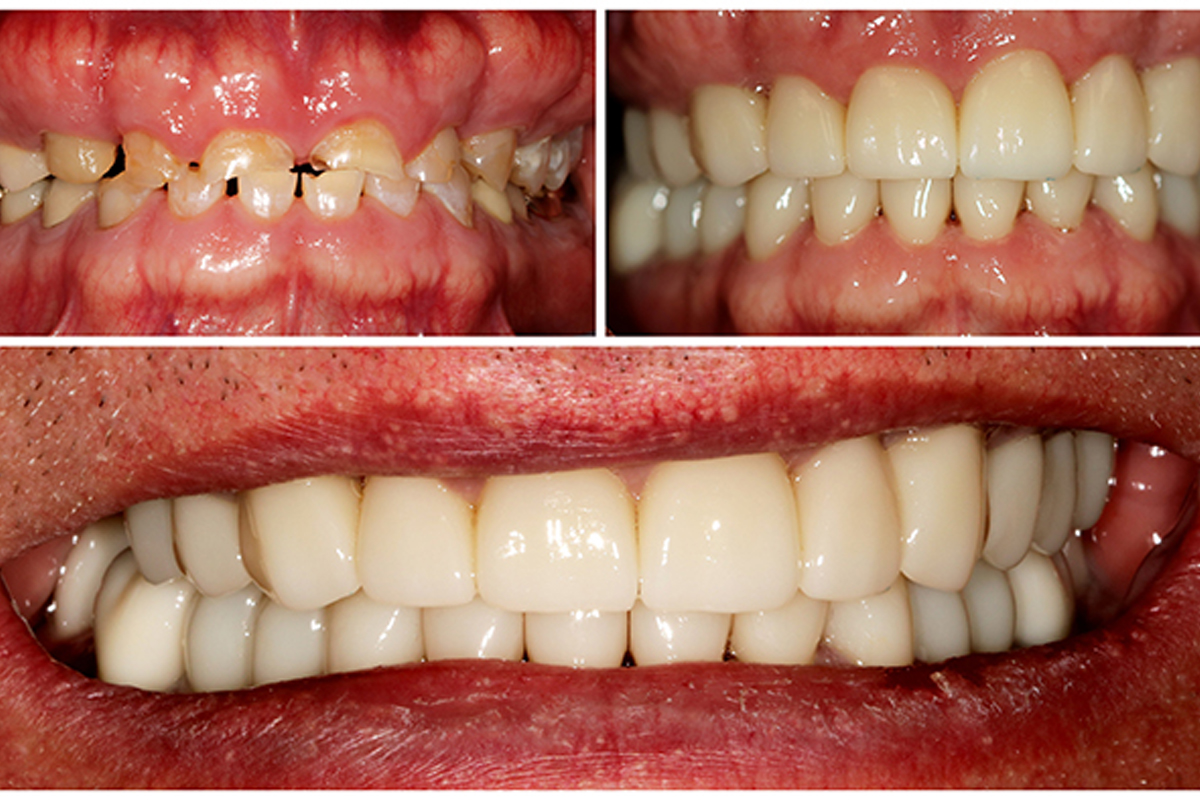Full mouth rehabilitation (or full mouth reconstruction) is a comprehensive treatment that addresses extensive dental issues, restoring the function, health, and aesthetics of the entire mouth. It is typically recommended for patients with complex dental problems such as severely worn teeth, multiple missing teeth, misaligned jaws, or chronic pain in the jaw joints (TMJ). This rehabilitation involves a combination of dental procedures tailored to each patient’s needs, often requiring the expertise of various dental specialists.
Who Needs Full Mouth Rehabilitation?
- Severely Worn Teeth: Due to grinding (bruxism), acid erosion, or aging.
- Multiple Missing Teeth: Resulting from decay, injury, or periodontal disease.
- Misaligned Bite (Malocclusion): Causing issues with chewing, speaking, or jaw pain.
- Facial Trauma: Patients who have experienced severe trauma or injury affecting the teeth, gums, and jaw structure.
- TMJ Disorders: Chronic jaw pain or discomfort related to temporomandibular joint disorders.
- Oral Cancer Patients: Those who may require reconstructive dental work post-treatment.
Key Procedures in Full Mouth Rehabilitation
- Crowns and Bridges: Restore damaged or missing teeth and improve chewing function.
- Dental Implants: Replace missing teeth with a stable, long-lasting solution that preserves jawbone health.
- Veneers: Improve the appearance of discolored or misshapen teeth.
- Orthodontics: Align teeth and correct bite issues, which may involve braces or clear aligners.
- Periodontal Therapy: Treats gum disease to create a healthy foundation for other dental procedures.
- TMJ Treatment: Techniques like splint therapy or jaw repositioning may be used to alleviate TMJ symptoms.
- Bite Rebalancing: Reestablishes a balanced bite for optimal comfort and function, reducing strain on the jaw muscles and joints.
Benefits of Full Mouth Rehabilitation
- Restored Functionality: Improved ability to chew, speak, and enjoy a varied diet.
- Enhanced Aesthetics: A comprehensive smile makeover that improves overall facial aesthetics.
- Reduced Pain and Discomfort: Alleviates TMJ pain, headaches, and jaw discomfort related to bite issues.
- Long-Term Oral Health: Rehabilitation addresses underlying problems, preventing further damage.
Treatment Process
- Initial Consultation: Comprehensive examination, including X-rays, CT scans, and impressions, to assess the current dental health and determine the best course of action.
- Customized Treatment Plan: Based on the evaluation, a detailed treatment plan is developed, outlining the necessary procedures and their sequence.
- Phased Treatment: The treatment is often done in phases over several months, prioritizing critical procedures and ensuring optimal healing time between sessions.
- Follow-Up and Maintenance: Once the rehabilitation is complete, regular follow-up appointments help maintain results and address any concerns.
Full mouth rehabilitation can dramatically improve both the function and appearance of the teeth, enhancing oral health and quality of life for individuals facing complex dental issues.




